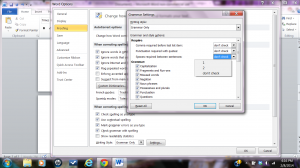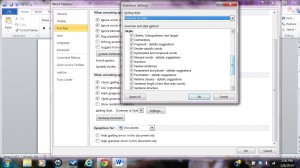 I read a lot, for both work and pleasure. When I read for work, my eyes scan every line, sentence, paragraph, page, chapter, and full manuscript for different criteria. I check spelling, grammar, punctuation, style, voice, tense, pacing, continuity, plot, narrative arc, tension, climax, resolution, and other less definable qualities such as honesty, heart, and whether the work might bring something new and necessary into the world.
I read a lot, for both work and pleasure. When I read for work, my eyes scan every line, sentence, paragraph, page, chapter, and full manuscript for different criteria. I check spelling, grammar, punctuation, style, voice, tense, pacing, continuity, plot, narrative arc, tension, climax, resolution, and other less definable qualities such as honesty, heart, and whether the work might bring something new and necessary into the world.
Writing is a hard job, and so is editing. As a writer you may not have enough energy or skill to do the work of a professional editor, but fear not; here are five simple steps that will make your manuscript better and allow your editor to focus on the bigger picture of the story.
- Check for passive voice. This is easier than you think especially if you are using Microsoft Word. In the Word options you can choose proofing for grammar alone, or grammar & style. Open these settings and discover a hidden treasure trove of options Word can automatically check.
If you are not using Microsoft Word you can check for passive voice using the zombie rule. If you can insert by zombies after the verb, you have passive voice.
The writer, who continued to use passive voice, even when her editor told her not to, was eaten (by zombies). — makes sense = passive voice
Zombies ate (by zombies) the writer who was known for her excessive use of passive voice.–does not make sense = active voice
- Check for extra spaces between sentences. There are a couple ways I do this, again using Microsoft Word. For the first method go to Word options, proofing, grammar, settings and set spaces between sentences to 1.
 A second approach is using the Find command under the Home tab. Type two spaces into the search box and Word will identify these spacing errors.
A second approach is using the Find command under the Home tab. Type two spaces into the search box and Word will identify these spacing errors.
- Cut overly used words such as very, really, just and that. If your writing is strong, you don’t need these fillers. Most of all, rethink the use of the word that. Often you can remove these words without any impact on content or meaning and will result in tighter sentences. Use the Find command in Word to search and remove these pesky rascals.
- Eliminate filler phrases. Similar to the above unnecessary words, filler phrases intended to enhance the sentence typically result in unwanted wordiness. Some frequently overused phrases are in order to and start to. You can write clear and concise sentences by emphasizing the action of the verb. Think strong and powerful; think of Hemingway.
We started to drink with the young matador in the plaza café.
We drank with the young matador in the plaza café.
- Do not overuse unique vocabulary. Sometimes we are enraptured with a word and celebrate its perfect use in a passage. These words may delight and surprise readers on first appearance and then lose their power upon second and even (horror) third appearance. Eye and ear candy should be used with a light touch.
Happy Editing.
Writing and Listening — an Interview with Brooke Randel

As a young girl Brooke Randel knew little about the Holocaust—just that it was a catastrophe in which millions were murdered, and that her grandma Golda Indig barely escaped that fate. But her Bubbie never spoke about what happened, and the two spent most of their time together making pleasant memories: baking crescent roll cookies, playing gin rummy, and watching Baywatch. Until an unexpected phone call when Golda said, out of the blue: “You should write about my life. What happened in the war.” What results is a fascinating memoir—about one woman’s harrowing survival, and another’s struggle to excavate theRead more…


Thanks for all you’ve taught me, Jenna. I’ll try not to write THAT.
Warmly,
Elaine
use ear candy sparingly. Yes! Thank you.
I hurled a book when I read, twice within two paragraphs, “his clothing was an extension of his lifestyle.” Which was horrendous the first time.
Thanks Megan for your honest reaction to bad writing. It is a bit like nails on a chalkboard to an editor.
Great advice! I love the “by zombies” trick! Writing stories with prescribed word counts taught me to select my words carefully. Strong verbs can pack a punch!
Kim
Thanks, Jenna. I love that you show exactly how I can get my computer to do a lot of the work. Cheers!
Robin Botie